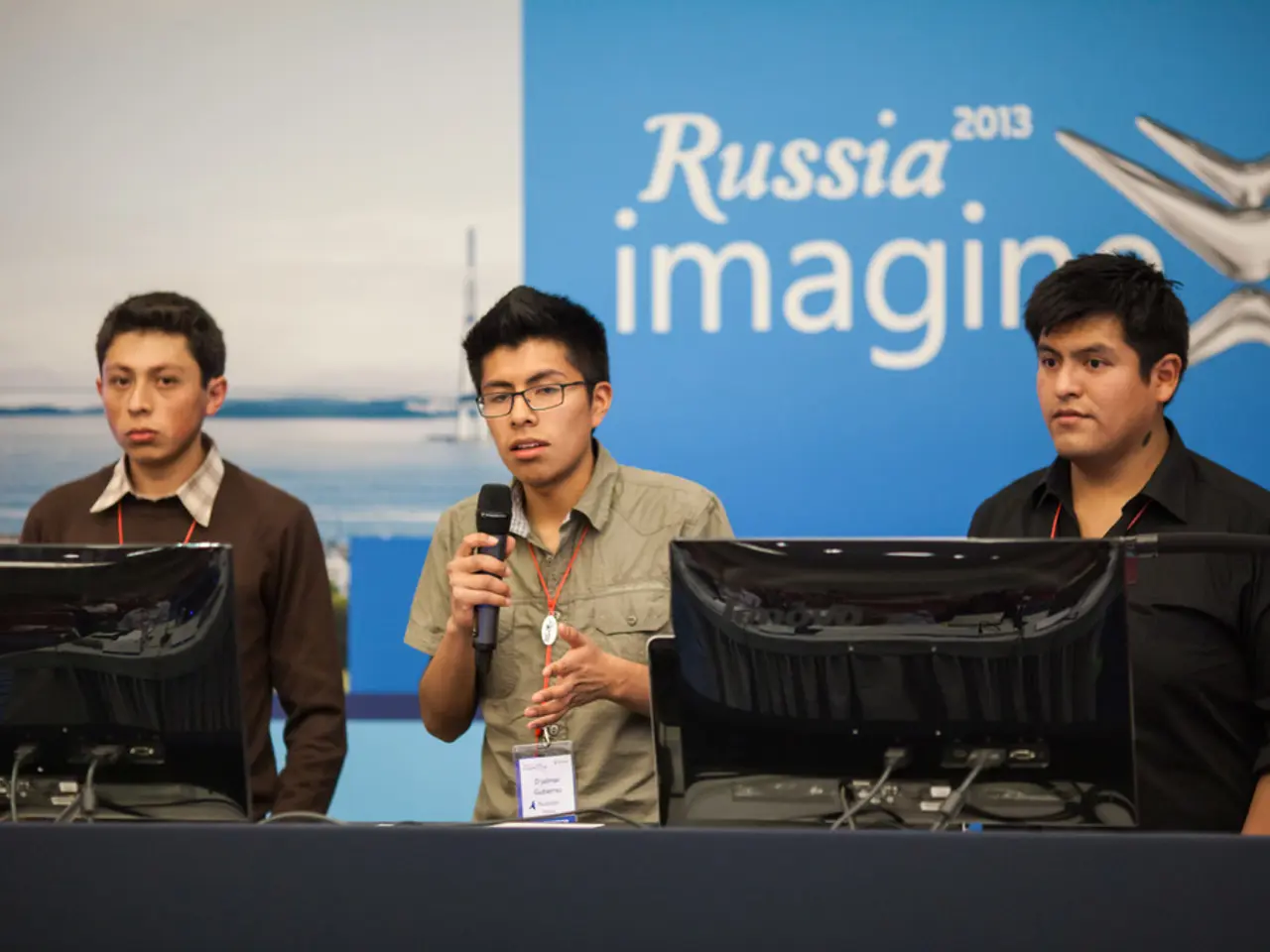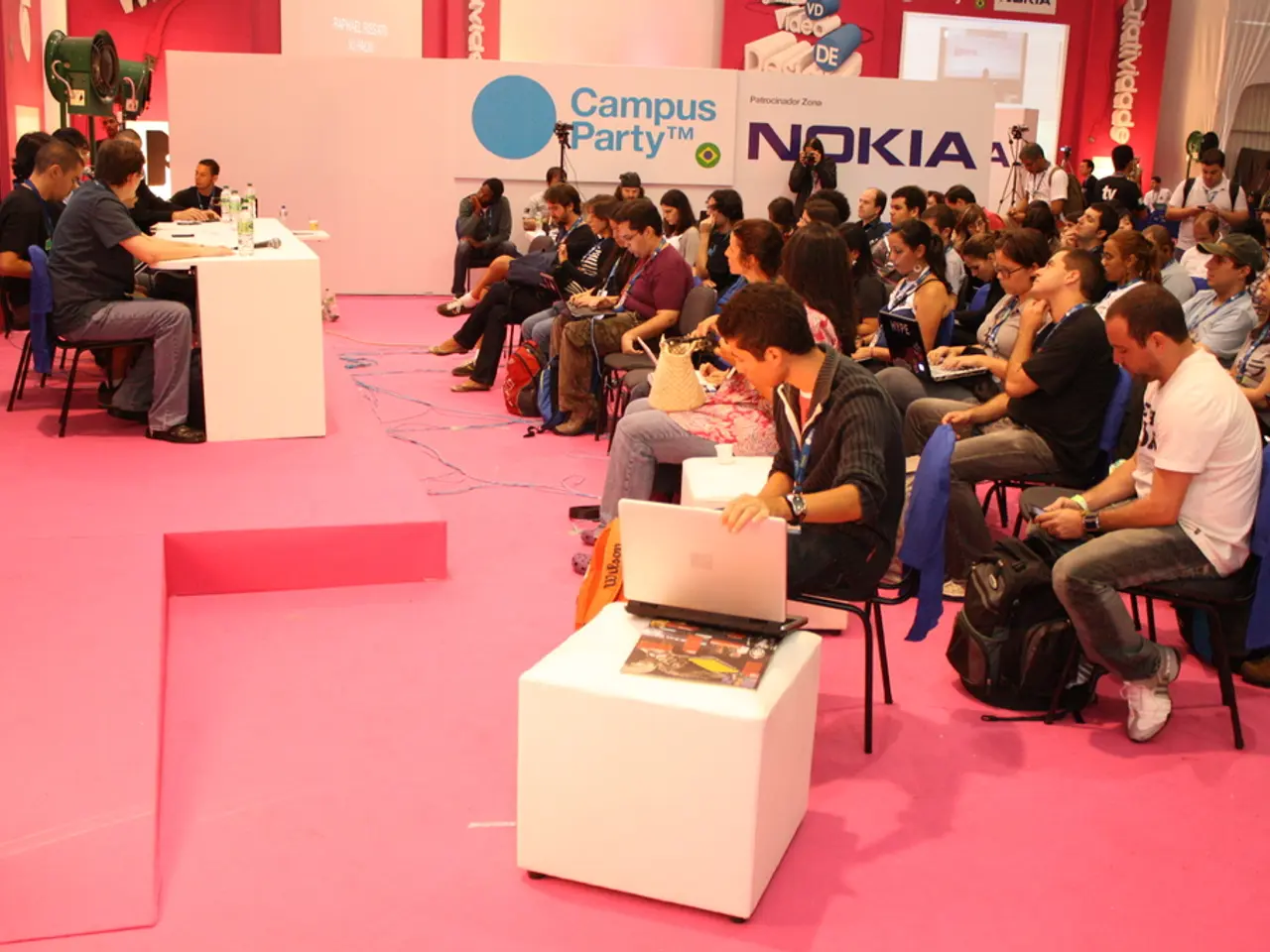Federal aid of 10 million euros earmarked for bolstering Berlin's burgeoning startup scene - Federal Government allocates 10 million euros for Berlin's start-up support
Berlin and Brandenburg are set to establish a new start-up factory, Unite, with a focus on fostering technology-driven start-ups from science, particularly in the areas of Artificial Intelligence, health, and green technologies. This initiative aims to serve as a central transfer platform for technology-based spin-offs from academia and industry within the Berlin-Brandenburg region.
The project is built upon the strong ecosystem of over 250,000 students and 30,000 researchers in the region, and leverages successful prior startup support from institutions like HTW Berlin and the Berlin University Alliance, which includes prominent universities such as Freie Universität Berlin and Humboldt-Universität zu Berlin.
The Federal Government of Germany, through the Federal Ministry for Economic Affairs and Energy (BMWi), has awarded Unite a grant of up to €10 million over five years as part of a broader national competition to establish up to ten startup factories nationwide. This funding will be distributed as seed funding for the establishment of Unite. Crucially, this public funding has helped to attract an additional €10 million in private investment commitments from private investors, effectively doubling the financial base for Unite's operations and growth.
Berlin's governing mayor, Kai Wegner, aims to establish a science-based start-up every day by 2030. Economy Senator Franziska Giffey (SPD) has highlighted the federal funding decision to award one of the €10 million promotions to Berlin, stating it will provide a strong boost to make Berlin the number one innovation location in Europe.
Brandenburg's Minister of Science Manja Schüle (SPD) considers the project to be a turbo for science-based start-ups and promises to do everything to ensure Unite's success. The Senate is planning a new IP strategy to accelerate the transfer of technology from scientific institutions to start-ups, with a goal of completing the process in a maximum of three months. Unite will implement this new IP strategy.
Munich and Berlin are currently considered startup hotspots, and Wegner and the Berlin Senate aim to ensure that Bavaria doesn't get the upper hand with the new startup factory. The overall goal of Unite is to establish a regional hub for innovation and support the creation of 1,750 startups annually by 2030.
The renegotiation of university contracts is currently ongoing, and Stietzel emphasizes the need to use this window of opportunity. Sebastian Stietzel, the president of the Industry and Commerce Chamber of Berlin, has called for improved conditions for start-ups, suggesting universities should anchor entrepreneurship and knowledge transfer as an equally important third pillar in their legal mandate.
Recent data shows that the number of start-ups founded nationwide has increased, with almost 3,200 new start-ups in 2021, but falling to just under 2,500 in 2023. However, in the first half of 2024, there were 1,500 new startups founded, suggesting the 3,000 mark could be exceeded again by the end of the year. With Unite, Berlin does not want to be left behind by Bavaria in the start-up scene, and Kai Wegner and the black-red Senate aim to ensure that with the new startup factory, Berlin maintains its competitive edge.
In addition to the federal funding, "Unite" has also secured private capital, pledged by donors including the Berlin Sparkasse, private investors, foundations, economic partners such as Bayer and Deutsche Telekom, and others. The start-up factory "Unite" was awarded one of ten projects nationwide in the EXIST Lighthouse Competition.
The Community policy and the Employment policy of Berlin and Brandenburg will play significant roles in supporting the success of Unite, the new start-up factory focusing on technology-driven start-ups. The goals include attracting more private investment, promoting innovation, and creating 1,750 startups annually by 2030, which aligns with the city's vision to establish a science-based start-up every day by that year. The Federal Government's finance towards Unite, along with the additional investments from private entities, will provide the necessary financial base to achieve these objectives. Moreover, the implementation of a new IP strategy will streamline the transfer of technology from academic institutions to start-ups, further boosting the startup scene in the Berlin-Brandenburg region.




